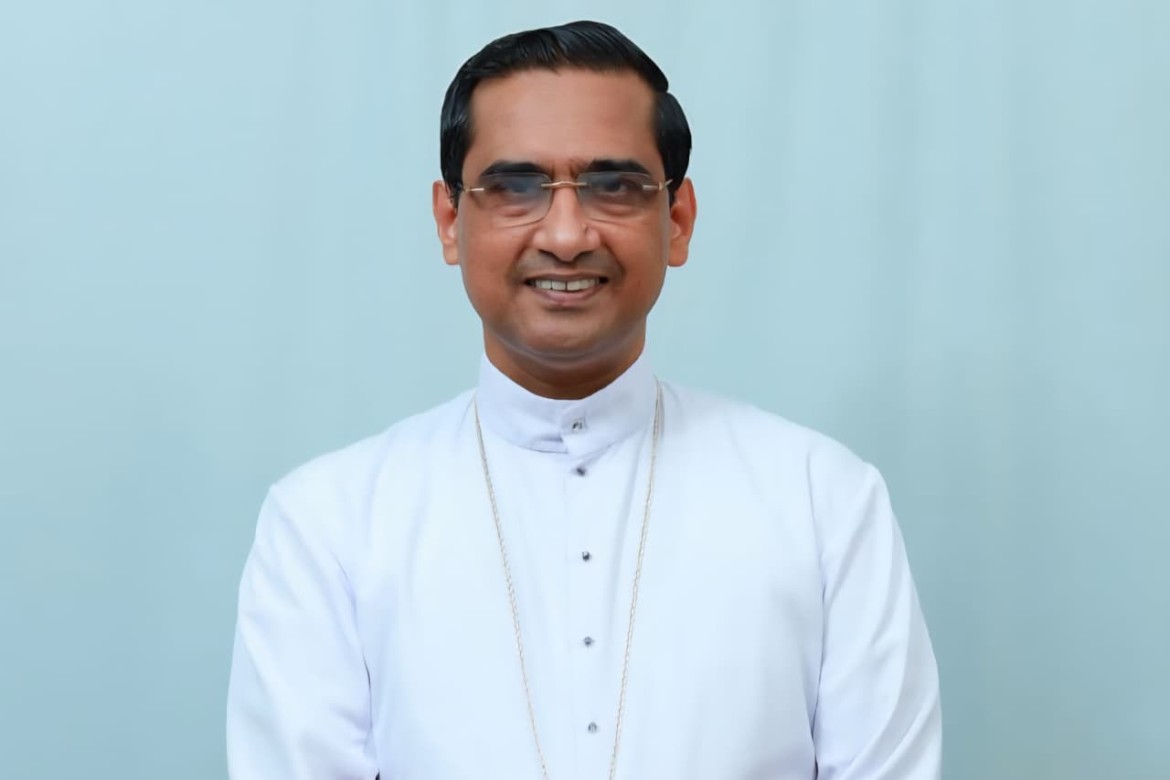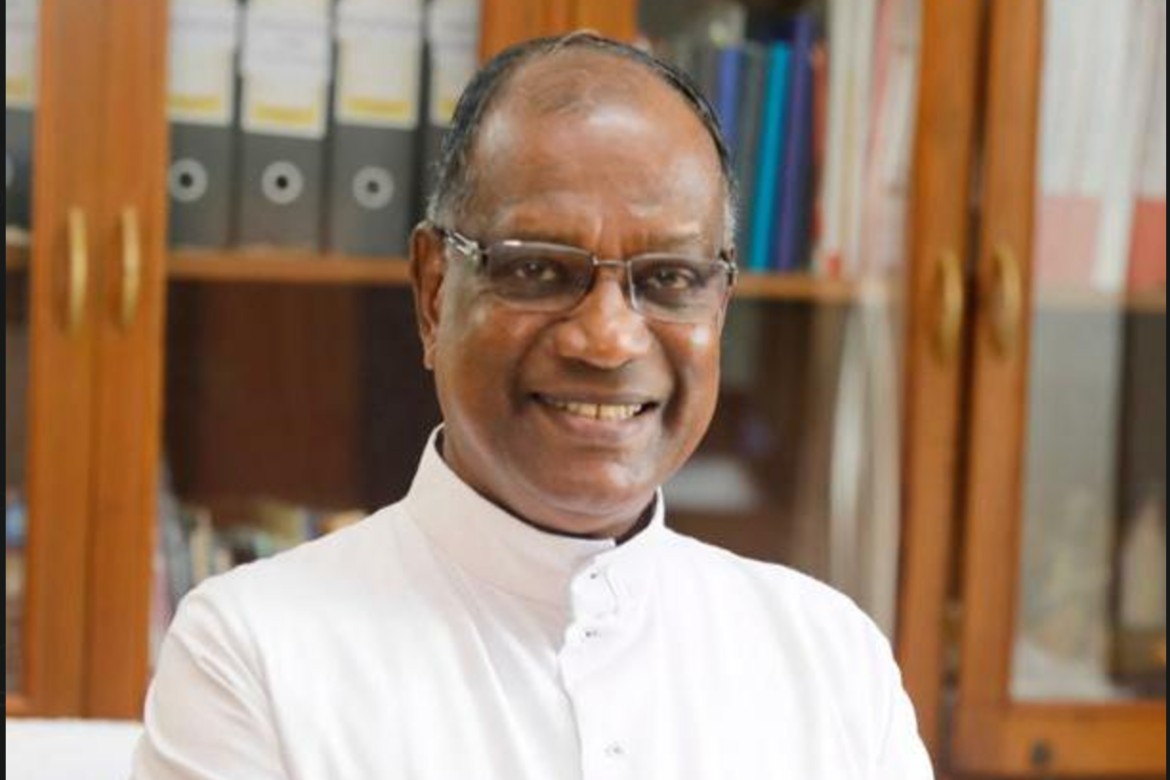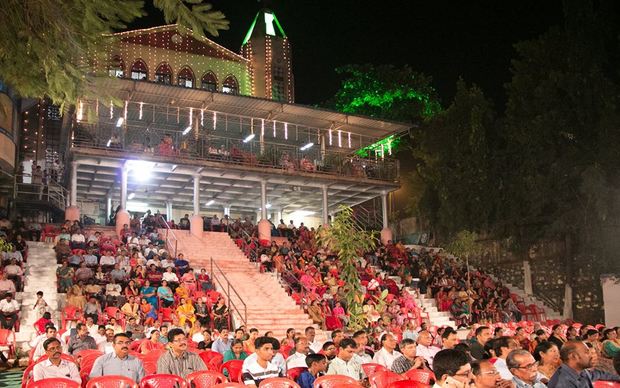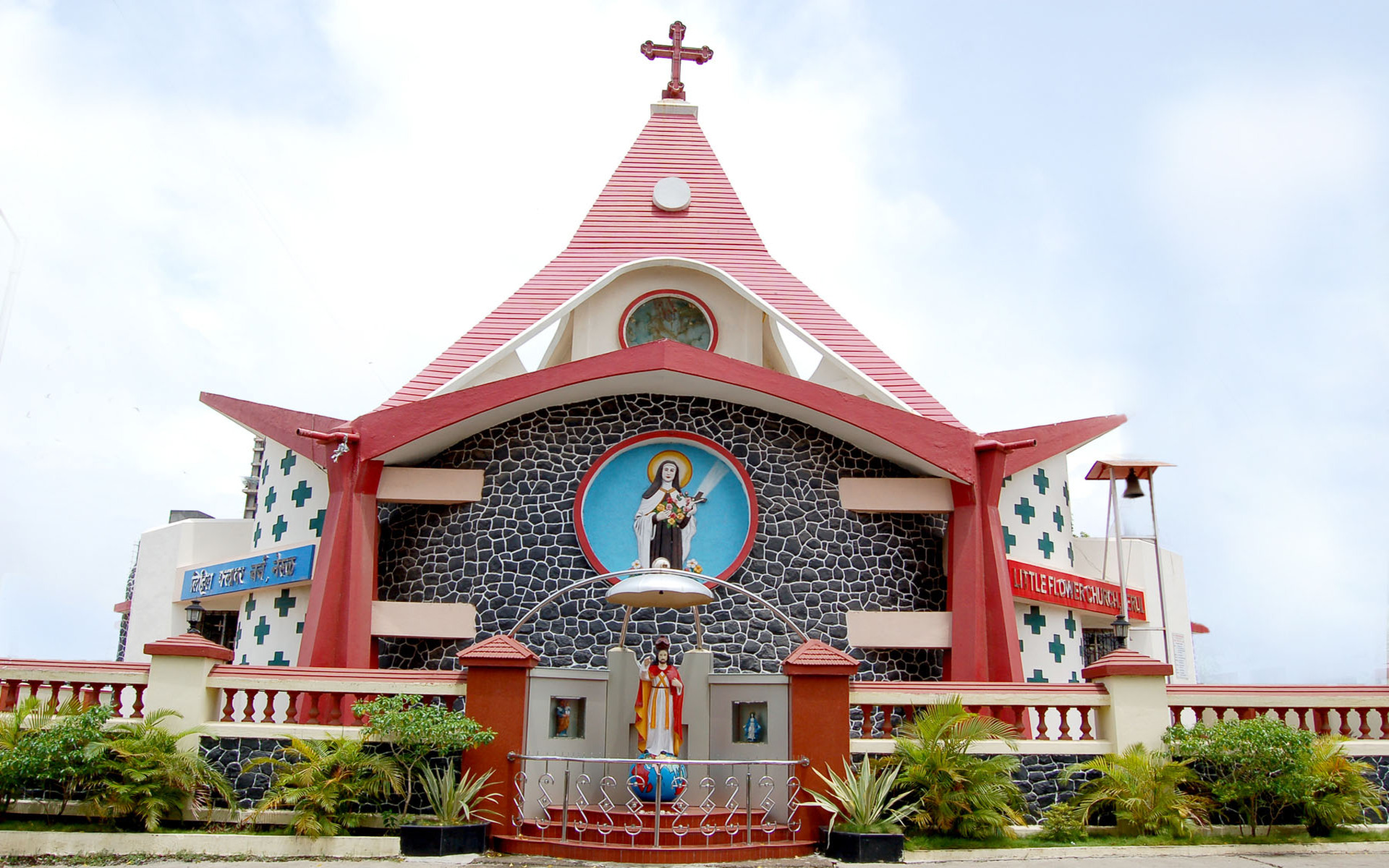Pope's Message
At the outset, I wish Little flower church in Navi Mumbai my fervent good wishes for peace, together with a heartfelt message of hope to men and women throughout the world. I do so by offering for our common reflection one important theme. It is one which I consider particularly important: the human family, a community of peace. The first form of communion between persons is that born of the love of a man and a woman who decide to enter a stable union in order to build together a new
family. But the peoples of the earth, too, are called to build relationships of solidarity and cooperation among themselves, as befits members of the one human family: “All peoples”—as the Second Vatican Council declared—“are one community and have one origin, because God caused the whole human race to dwell on the face of the earth (cf. Acts 17:26); they also have one final end, God”.
The Family, Society and Peace
The natural family, as an intimate communion of life and love, based on marriage between a man and a woman, constitutes “the primary place of ‘humanization' for the person and society”, and a “cradle of life and love”. The family is therefore rightly defined as the first natural society, “a divine institution that stands at the foundation of life of the human person as the prototype of every social order”.
Indeed, in a healthy family life we experience some of the fundamental elements of peace: justice and love between brothers and sisters, the role of authority expressed by parents, loving concern for the members who are weaker because of youth, sickness or old age, mutual help in the necessities of life, readiness to accept others and, if necessary, to forgive them. For this reason, the family is the first and indispensable teacher of peace. It is no wonder, therefore, that violence, if perpetrated in the family, is seen as particularly intolerable. Consequently, when it is said that the family is “the primary living cell of society”, something essential is being stated. The family is the foundation of society for this reason too: because it enables its members in decisive ways to experience peace. It follows that the human community cannot do without the service provided by the family. Where can young people gradually learn to savour the genuine “taste” of peace better than in the original “nest” which nature prepares for them? The language of the family is a language of peace; we must always draw from it, lest we lose the “vocabulary” of peace. In the inflation of its speech, society cannot cease to refer to that “grammar” which all children learn from the looks and the actions of their mothers and fathers, even before they learn from their words.
The family, since it has the duty of educating its members, is the subject of specific rights. The Universal Declaration of Human Rights, which represents a landmark of juridic civilization of truly universal value, states that “the family is the natural and fundamental group unit of society and is entitled to protection by society and the State”(7). For its part, the Holy See sought to acknowledge a special juridic dignity proper to the family by publishing the Charter of the Rights of the Family. In its Preamble we read: “the rights of the person, even if they are expressed as rights of the individual, have a fundamental social dimension which finds an innate and vital expression in the family”(8). The rights set forth in the Charter are an expression and explicitation of the natural law written on the heart of the human being and made known to him by reason. The denial or even the restriction of the rights of the family, by obscuring the truth about man, threatens the very foundations of peace.
Consequently, whoever, even unknowingly, circumvents the institution of the family undermines peace in the entire community, national and international, since he weakens what is in effect the primary agency of peace. This point merits special reflection: everything that serves to weaken the family based on the marriage of a man and a woman, everything that directly or indirectly stands in the way of its openness to the responsible acceptance of a new life, everything that obstructs its right to be primarily responsible for the education of its children, constitutes an objective obstacle on the road to peace. The family needs to have a home, employment and a just recognition of the domestic activity of parents, the possibility of schooling for children, and basic health care for all. When society and public policy are not committed to assisting the family in these areas, they deprive themselves of an essential resource in the service of peace. The social communications media, in particular, because of their educational potential, have a special responsibility for promoting respect for the family, making clear its expectations and rights, and presenting all its beauty.
Humanity Is One Great Family
The social community, if it is to live in peace, is also called to draw inspiration from the values on which the family community is based. This is as true for local communities as it is for national communities; it is also true for the international community itself, for the human family which dwells in that common house which is the earth. Here, however, we cannot forget that the family comes into being from the responsible and definitive “yes” of a man and a women, and it continues to live from the conscious “yes” of the children who gradually join it. The family community, in order to prosper, needs the generous consent of all its members. This realization also needs to become a shared conviction on the part of all those called to form the common human family. We need to say our own “yes” to this vocation which God has inscribed in our very nature. We do not live alongside one another purely by chance; all of us are progressing along a common path as men and women, and thus as brothers and sisters. Consequently, it is essential that we should all be committed to living our lives in an attitude of responsibility before God, acknowledging him as the deepest source of our own existence and that of others. By going back to this supreme principle we are able to perceive the unconditional worth of each human being, and thus to lay the premises for building a humanity at peace. Without this transcendent foundation society is a mere aggregation of neighbours, not a community of brothers and sisters called to form one great family.
The Family, The Human Community And The Environment
The family needs a home, a fit environment in which to develop its proper relationships. For the human family, this home is the earth, the environment that God the Creator has given us to inhabit with creativity and responsibility. We need to care for the environment: it has been entrusted to men and women to be protected and cultivated with responsible freedom, with the good of all as a constant guiding criterion. Human beings, obviously, are of supreme worth vis-à-vis creation as a whole. Respecting the environment does not mean considering material or animal nature more important than man. Rather, it means not selfishly considering nature to be at the complete disposal.








